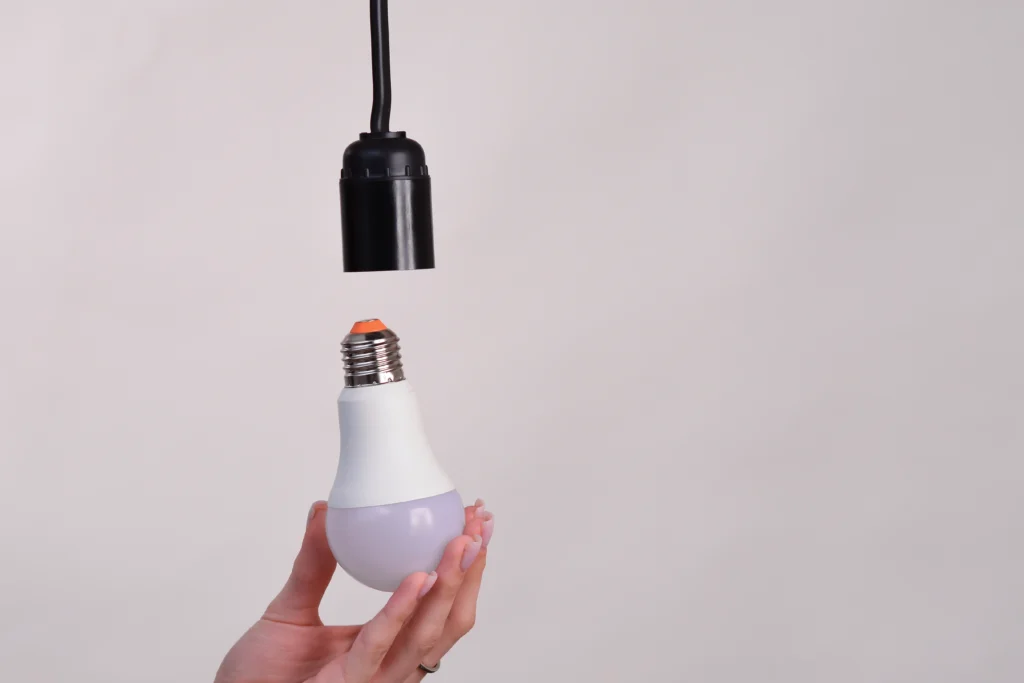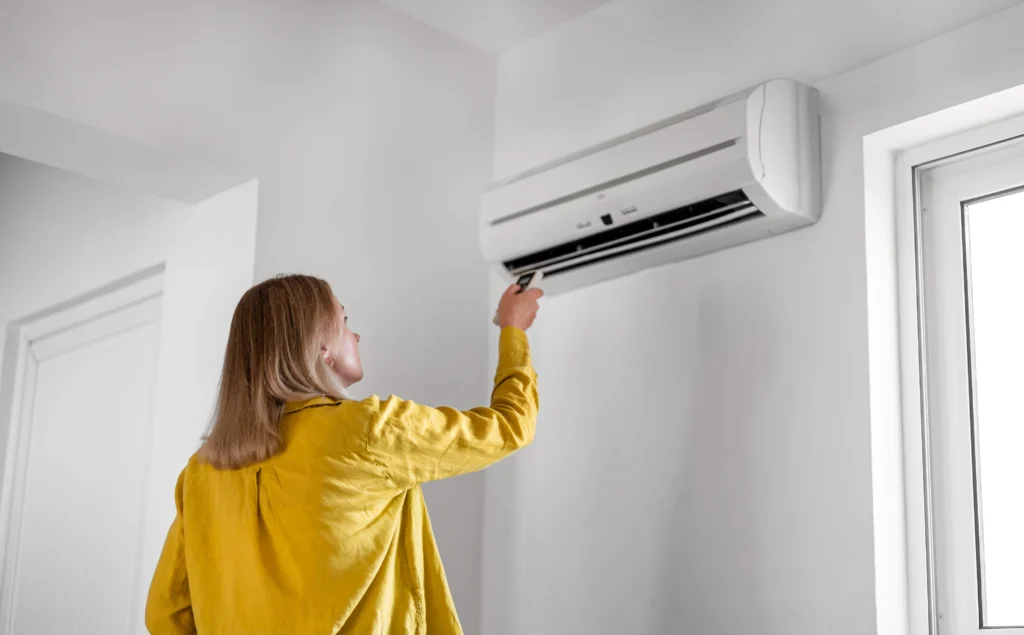With the global rise in the cost of living, it’s not surprising that everyone is feeling the financial pinch. Now, everyday costs such as groceries, transport, and utilities, can be major stressors for both families and individuals. One of the biggest culprits for causing financial pain is our old nemesis the electricity bill–particularly during the winter months! That’s why we’ve put together a list to show you how to save money on your power bill in winter in New Zealand without becoming a human popsicle.

Overview:
- Why is electricity so expensive during winter?
- How much power does the average person use per month?
- Best way to save electricity in winter:
-
- Make the change to LED lights
- Stop draughts
- Switch your appliances off at the wall
- Wash your clothes with cold water
- Dry your clothes on the clothesline
- Take shorter showers
- Make use of your curtains and blinds
- Upgrade old appliances
- Embrace winter fashion
- Use your heat pump more efficiently
- Keep the moisture out
- Cut back on the use of extra or unnecessary appliances
Why is electricity so expensive during winter?
It’s an inescapable fact that we use more power in winter, usually due to staying warm in the colder temperatures. But more than what we’re doing at home, there are other factors that affect the cost of electricity.
While New Zealand has been making efforts to diversify its energy mix, including increasing the use of renewable energy sources such as wind and geothermal power, it still relies on fossil fuels for a portion of its electricity generation. Increases in the price of fossil fuels, such as natural gas, can contribute to higher electricity prices during winter when demand is high.
Additionally, there is typically a higher demand for electricity due to the use of electric heaters, heat pumps, and other heating devices to keep homes and businesses warm. This increased demand can put pressure on the electricity supply, leading to higher prices.
How much power does the average person use per month?
Knowing your average power consumption can be helpful when budgeting for your future power bills. In 2023, the average New Zealand home consumed about 7000kWh per annum.
If you’re looking to suss out your own usage so you can better manage the way you use power, contact your energy company directly. Most energy companies are accessible online, by phone, or by email, and are obligated to provide you with your usage information.
How much does electricity cost per kWh in New Zealand?
The average residential electricity price in New Zealand is around 25 to 30 cents per kilowatt-hour (kWh). However, it’s essential to note that this is an approximate range, and actual prices may vary.
What is the average power bill per month in New Zealand?
The average power bill per month can vary widely depending on where you live, the electricity retailer, the type of plan, and consumption levels. Generally, New Zealanders may find themselves paying anywhere from $100 up to $400 per month.
Best way to save electricity in winter
Winter is an expensive season when you live in a colder climate and saving money on your energy bill while keeping warm can be a delicate balance. Check out our list of energy-saving ideas that can help you stay cozy this winter without sending you broke!
1. Make the change to LED lights

Making the change to more energy efficient light bulbs, like LED lights, can be a simple but effective way to shave some money off your power bill. LED lights use 85% less energy and can last up to 15 times longer than traditional light bulbs. So you’ll be saving money in the long run not only on your power bill, but on your grocery bill too.
2. Stop draughts
It can be difficult to efficiently heat a room or a house when hot air is continuously let out while cold air sneaks in. So to save your money on your power bill and stay cozy this winter, ensure you stop any droughts that may be getting in. This can be as simple as blocking cracks under the door, or it may mean re-sealing cracks and gaps in your windows and window sills.
3. Switch your appliances off at the wall
You may think turning off your appliances is enough to save on electricity. But appliances that use standby mode can still use power. A simple way to ensure your appliances aren’t adding to your electricity bill is by turning them off at the wall.
4. Wash your clothes with cold water
By switching to washing your clothes with cold water, you could save an extra 20 to 40 cents per load. Many people believe that hot water is better for your clothes when cold water will do just as good a job!
5. Dry your clothes on the clothesline

Everyone knows by now that dryers use a ton of energy and can quickly have your electricity bill souring. In fact, using a dry can potentially cost you up to $1 per load. This amount seems insignificant on its own, but added up over time, you could be losing some serious cash. So wherever possible, hang your clothes up on the clotheslines.
If the weather’s no good for drying clothes outside, or if you don’t have a clothesline, consider purchasing a portable clothesline. They’re lightweight, easily maneuverable, and easy to pop up indoors, all while providing a surprising amount of drying space.
6. Take shorter showers
You may be thinking that water is the main concern when taking a shower, and while this is a concern, the electricity it takes to heat your hot water is also a concern. By taking shorter showers, you reduce the amount of time needed for heating the hot water. So keep your showers short and sweet.
7. Make use of your curtains and blinds
You’d be surprised how effective curtains and blinds can be, especially if you choose curtains with a thicker material such as blackout curtains. To help your home retain heat this winter, open your curtains or blinds during the day, allowing the sun to shine in and warm up your home. Then, just because the sun goes down, close your curtains or blinds and trap the warmth of the day in.
8. Upgrade old appliances
Improvements in technology are being made all the time which means newer appliances are often more energy efficient than their predecessors. Upgrading some of your old appliances could be helpful to your wallet in the long run.
9. Embrace winter fashion
One of the easiest and cheapest ways to keep warm this winter is to wear warmer clothes! To save yourself some cash, check out your local discount clothing store or thrift store for some bargain deals on winter clothes.
10. Use your heat pump more efficiently

Heat pumps are another common appliance that can have an unfortunate impact on your power bill. To keep electricity costs low when using your heat pump, make sure you:
- Close all the curtains just before the sun goes down to keep the heat in and the cold out, ensuring your heat pump doesn’t have to work harder (and use more energy) than necessary.
- Only heat the room you’re in, rather than the whole house.
- Keep the doors and windows closed in the room you’re in, including if you’re just stepping out for a moment.
- Set the temperature to around 18-22 degrees. This may seem low but rest assured these temperatures are most efficient for your heat pump.
- Clean out your heat pump’s filters at least once a year to keep it running at its most efficient.
11. Keep the moisture out
It may be surprising to know, but moisture in the air can make your home more expensive to heat. So this winter, try reducing the amount of moisture in your home by:
- Using the extractor fan when you’re cooking in the kitchen.
- Using the extractor fan when you’re having a shower.
- Drying your clothes outside as much as possible.
- Wiping up any condensation that appears on your windows or window sills.
- If it’s a sunny day, open doors and windows during the day to air your home out.
12. Cut back on the use of extra or unnecessary appliances
It’s a tough call, but cutting back on unnecessary appliances in winter can really help ease the sting of your power bill in leaner times. However much it hurts, try to switch off:
- Heated towel racks
- Mini fridges/bar fridges
- Spare freezers
- Smart devices such as voice-activated gadgets
- Microwaves; switch off your microwave when not in use and use a battery operated clock to keep the time instead
Looking to upgrade to energy efficient appliances but don’t have the funds? Swoosh is here to help!
For small direct loans starting from $2,000 to personal broker loans of $100,000, apply online today or contact our friendly team at Swoosh Finance.








